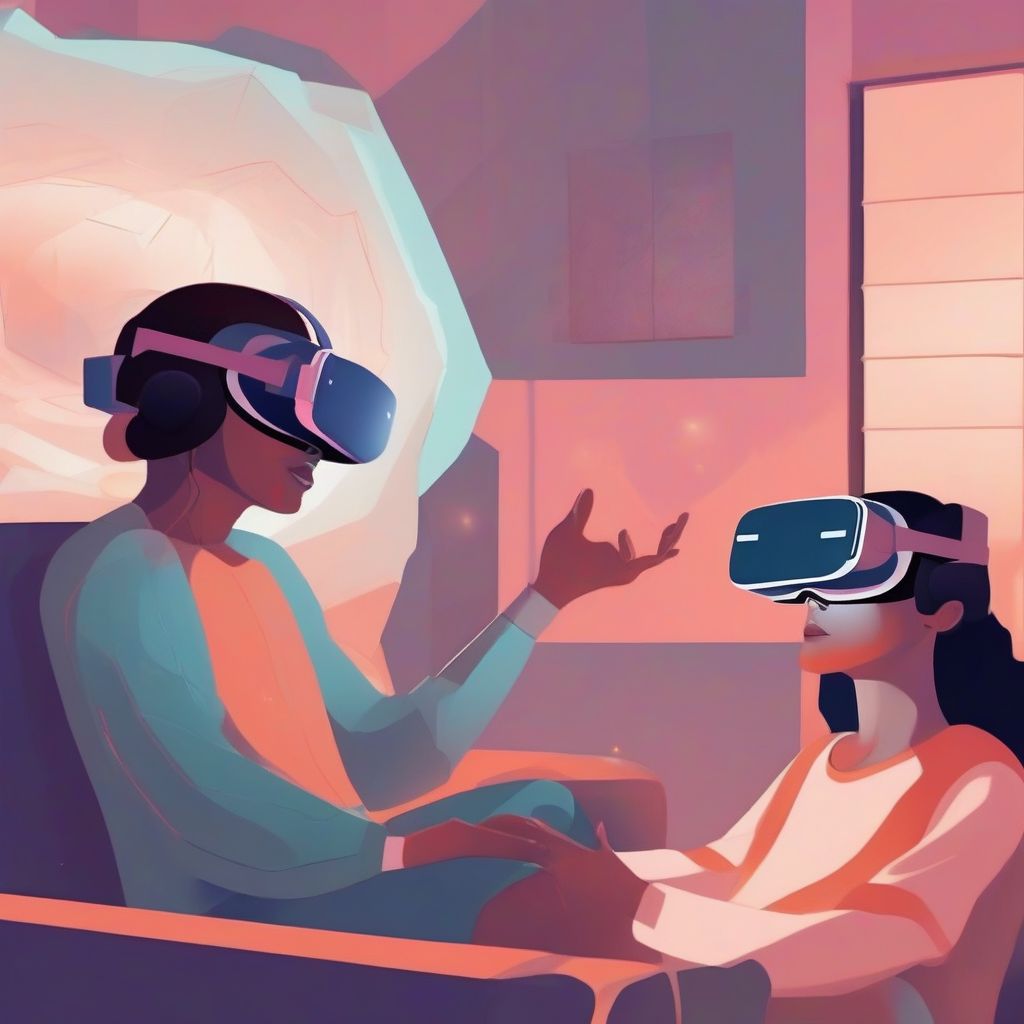Mental health, once a hushed topic, is now rightfully taking center stage. We’re finally acknowledging that mental well-being is just as important as physical health, and with that recognition comes a surge in research aimed at improving how we treat mental illnesses. This exploration into how mental health research is advancing therapy methods is crucial for therapists, individuals seeking help, and anyone invested in a healthier future. Are you ready to discover the exciting developments shaping the future of mental healthcare?
The Neuroscience Revolution: Unlocking the Brain’s Secrets
One of the most significant advancements comes from neuroscience. Brain imaging techniques like fMRI and PET scans are providing unprecedented insights into how the brain functions in different mental states. This allows researchers to pinpoint the specific brain regions and neural pathways involved in conditions like depression, anxiety, and schizophrenia. For example, studies have shown that individuals with depression often have reduced activity in the prefrontal cortex, an area responsible for mood regulation. This understanding allows for the development of more targeted therapies, like transcranial magnetic stimulation (TMS), which directly stimulates specific brain regions to alleviate symptoms.
Personalized Medicine: Tailoring Treatment to the Individual
Imagine a world where mental health treatments are as personalized as your dietary plan. Thanks to advancements in genetics and pharmacogenomics, that world is becoming a reality. Research is uncovering how individual genetic variations influence both the risk of developing mental illness and the response to different medications. This means that in the future, a simple genetic test could help determine which medication is most likely to be effective for a particular individual, minimizing the trial-and-error process and maximizing positive outcomes.
Beyond the Couch: Innovative Therapeutic Approaches
Traditional talk therapy remains a cornerstone of mental health treatment, but research is leading to exciting new approaches. One example is virtual reality therapy (VRT). VRT immerses individuals in simulated environments that trigger specific anxieties or phobias, providing a safe space to practice coping mechanisms. Imagine someone with a fear of public speaking practicing a presentation in a virtual auditorium. This exposure, coupled with therapeutic guidance, can lead to significant reductions in anxiety.
Mindfulness and Meditation: Harnessing the Power of the Present
Another area gaining traction is mindfulness-based therapies. These practices, rooted in ancient traditions, encourage individuals to focus on the present moment without judgment. Research shows that mindfulness can reduce stress, improve focus, and even change brain structure in areas associated with emotional regulation. Studies have shown that mindfulness-based cognitive therapy (MBCT) can be particularly effective in preventing relapse in individuals with recurrent depression. It equips them with the tools to recognize and manage early warning signs, breaking the cycle of negative thoughts and emotions.
The Rise of Big Data and Artificial Intelligence
The digital age brings with it an explosion of data, and mental health research is leveraging this to its advantage. Large datasets from electronic health records, wearable devices, and even social media activity are being analyzed to identify patterns and predict risk factors for mental illness. Artificial intelligence (AI) is playing a key role in this analysis, allowing researchers to sift through massive amounts of information and uncover insights that would be impossible for humans to detect on their own. Imagine AI-powered apps that can analyze speech patterns or sleep data to detect early signs of depression or anxiety, allowing for timely intervention.
Breaking Down Barriers: Teletherapy and Access to Care
Access to mental healthcare remains a significant challenge, particularly in underserved communities. Teletherapy, the delivery of mental health services via video conferencing or phone, is helping to bridge this gap. Research consistently shows that teletherapy can be just as effective as in-person therapy for many conditions, offering a convenient and accessible alternative. This is especially crucial in rural areas or for individuals with mobility limitations.
 Advancing Therapy Methods
Advancing Therapy Methods
The Future of Mental Health Treatment: A Collaborative Approach
The future of mental health treatment lies in a collaborative approach, integrating the best of traditional and innovative methods. Combining insights from neuroscience, genetics, technology, and evidence-based therapies will lead to more personalized, effective, and accessible care. This is an exciting time for mental health research, and the continued investment in these advancements promises a brighter future for individuals struggling with mental illness.
Conclusion
This journey through the advancements in mental health therapy reveals a field undergoing rapid transformation. From the intricacies of neuroscience to the power of AI, research is paving the way for more personalized, effective, and accessible mental healthcare. We’ve explored the power of brain imaging, the promise of personalized medicine, the innovative approaches like virtual reality and mindfulness, and the potential of big data and AI. These advancements are not just abstract concepts; they are real-world tools that are already improving the lives of individuals struggling with mental illness.
As we move forward, the integration of these advancements will be key to providing comprehensive and tailored care. Remember, mental health is just as important as physical health, and seeking help is a sign of strength. If you or someone you know is struggling, don’t hesitate to reach out to a mental health professional. The future of mental healthcare is brighter than ever, and hope is within reach.
We encourage you to share your thoughts and experiences in the comments below. What advancements are you most excited about? Let’s continue the conversation and work together to break the stigma surrounding mental health and promote a world where everyone has access to the support they need.



